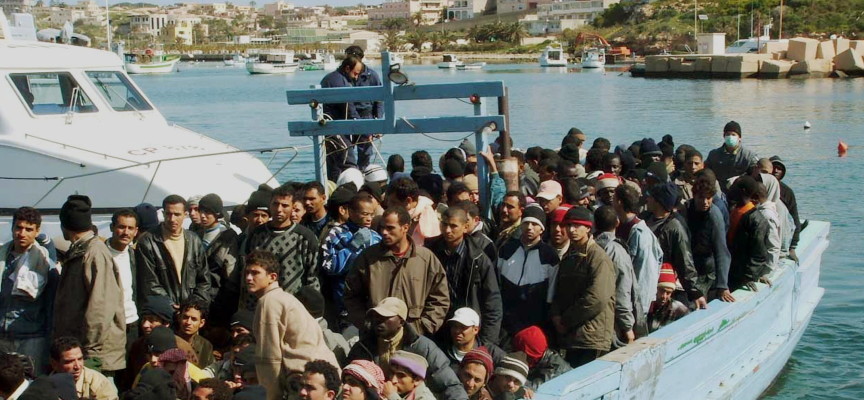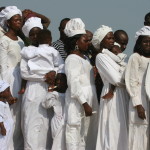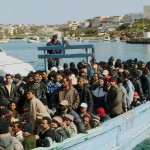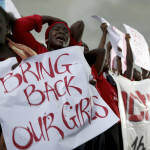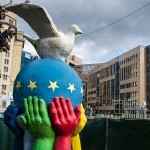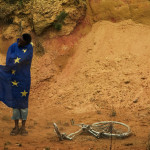It seems increasingly clear at this time that the tragedy of the boat travelling from North Africa (the Egyptian or Libyan coast) to Europe, then overwhelmed by the waves, is the worst massacre which took place in recent years in the Mediterranean Sea. In fact, the 950 deaths since the beginning of the year to date, have been added, according to the tragic confirmations of these hours, another 700 victims who lost their lives in their journey of hope, while fleeing war in total distress. The victims are “men and women like us” – said the Holy Father in the Regina Coeli on Sunday: adolescents, youth, children, families, Christian faithful, and people of other religions fleeing war and hunger, seized by despair.
Paraphrasing the Apostolic Constitution Gaudium et spes, taken up by Blessed Paul VI in his encyclical Populorum progressio, in the face of these repeated tragedies stemming from an international context marked by wars and poverty, “It is a very important duty of the advanced nations to help the developing nations” (nr. 48). A duty of solidarity that calls into question Europe, but also the global economic powers, as well as international organizations like the UN, and urges three actions. The immediate need for a European and international naval action in the Mediterranean Sea, that following the example of Mare Nostrum, would not only be limited to guard the borders, but should build real safety pathways, humanitarian channels for fleeing individuals and peoples. It ‘s a shame to hide behind the allegedly high costs of an operation and thus deliver to death families, young people, women, and children.
Secondly, to set up a social European plan aimed at strengthening – with its resources – the reception of those seeking international protection in its different forms, but also at evaluating new forms of recognition in the short term, thus paving the way to the circulation and protection of asylum seekers in all 28 European countries. Third, to start afresh from a joint international action having the goal of achieving peace and security in North Africa, the Middle East, and the Horn of Africa, so that people, thanks to an effective program of international cooperation, can rebuild their own country and enjoy their right to live there.
Italy, with its extraordinary history of solidarity, despite the crisis which also affects young people and families, cannot fail to share its own resources for the protection of a basic right and duty towards those who today, in total despair, start off on a journey. You cannot sacrifice the duty of solidarity to the reason of State or to political or electoral reasons, leaving it to the discretion of agencies and institutions. As a Christian community we cannot undermine our duty of hospitality toward those who show us in a renewed way the suffering face of Christ, “the suffering flesh of Christ” – as Pope Francis repeatedly reminded us. We ought to evaluate consistently and conscientiously how we can strengthen an ecclesial, social, and family network of reception, also as a sign of subsidiarity, which is a basic social value.
Sembra ormai delinearsi che la tragedia dell’imbarcazione in viaggio dal Nord Africa (proveniente dalle coste egiziane o libiche) verso l’Europa, travolta dalle onde del Mediterraneo, si configura come la più grave strage degli ultimi anni nel Mediterraneo. Infatti, ai 950 morti dall’inizio dell’anno ad oggi, si sono aggiunte, secondo le tragiche conferme di queste ore, altre 700 vittime, che hanno perso la vita nel loro viaggio della speranza, in fuga da guerre e disperazione. Le vittime sono “uomini e donne come noi” – ha ricordato il S. Padre al Regina Caeli di domenica mattina –: ragazzi, giovani e bambini, famiglie, persone cristiane e di altre religioni in fuga dalla guerra e dalla fame, mossi dalla disperazione.
Parafrasando la costituzione apostolica Gaudium et spes, ripresa dal beato Paolo VI nell’enciclica Populorum progressio, di fronte a queste ripetute tragedie nate da un contesto internazionale segnato da guerre e povertà, “le nazioni sviluppate hanno l’urgentissimo dovere di aiutare le nazioni in via di sviluppo” (n.48). Un dovere di solidarietà che chiama in causa l’Europa, ma anche le potenze economiche del mondo, le organizzazioni internazionali come l’ONU, sollecitando tre azioni. La necessità immediata di un’azione navale europea e internazionale nel Mediterraneo, che sull’esempio di Mare nostrum, possa non solo limitarsi a presidiare i confini, ma a costruire veri e propri percorsi di salvezza, canali umanitari per le persone e i popoli in fuga. È vergognoso nascondersi dietro ai supposti costi di un’operazione per abbandonare a se stessi famiglie, giovani, donne e bambini alla morte.
In secondo luogo, alimentare un piano sociale europeo che vada a rafforzare con risorse non solo l’accoglienza di chi chiede una protezione internazionale nelle sue diverse forme, ma valuti anche forme nuove di riconoscimento in tempi brevi, che permettano una circolazione e una tutela dei richiedenti asilo in tutti i 28 Paesi europei. In terzo luogo, ripartire da un’azione internazionale congiunta che abbia l’obiettivo della pace e della sicurezza nel Nord Africa, nel Medio Oriente e nel Corno d’Africa, così che le persone, grazie anche a un efficace programma di cooperazione internazionale, possano ricostruire il proprio Paese e avere il diritto di viverci.
L’Italia, con la sua storia straordinaria di solidarietà, nonostante la crisi che segna anche i giovani e le famiglie, non può rinunciare a condividere risorse per la tutela di un diritto e dovere fondamentale verso chi oggi, disperato, si mette in viaggio. Non si può sacrificare alla ragion di Stato o a ragioni politiche o elettorali il dovere della solidarietà, lasciando alla discrezionalità di organismi e istituzioni l’esercizio di tale dovere. Come comunità cristiana non si può indebolire il dovere dell’ospitalità di chi ci mostra in maniera rinnovata il volto sofferente di Cristo, “la carne sofferente di Cristo” – come ci ha ricordato più volte papa Francesco –, valutando con coerenza e coscienza di rafforzare una rete ecclesiale, sociale e familiare di accoglienza, segno anche di una sussidiarietà, fondamentale valore sociale.
Latest posts by Migrantes (see all)
- The wreck of solidarity - 21 aprile 2015

